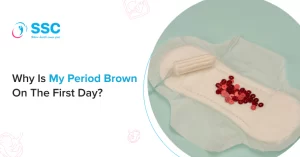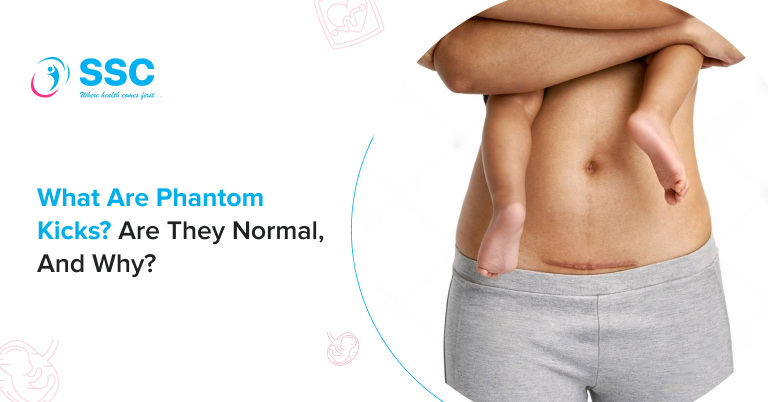Postpartum Essentials for Mother and Newborn
Postpartum can be challenging for every parent, regardless of whether this is their first or third kid. Many soon-to-be parents focus on getting ready for their new baby above all else, frequently ignoring the necessities that aid in a mother’s recovery.
There are a lot of things to get ready for, packing the hospital bag, picking the perfect baby name, and much more. But keeping the mother’s and the baby’s postpartum necessities organized is equally necessary.
We provide a list of postpartum necessities in this article to help you and your child have a comfortable postpartum during this time.
What is the Postpartum Period?
The postpartum phase, the fourth trimester, lasts roughly 12 weeks after the baby is born. Feeling overburdened, worn out, or uncertain about how to care for your child during this time is quite normal. You may get the baby blues, a brief mood shift that normally passes fast, as many new mothers do.
On the other hand, postpartum depression may be indicated if you’re experiencing acute or prolonged depression. Remember that you’re never alone on this road and that asking for help is a show of strength.
Postpartum Essentials for New Mothers:
Sanitary Napkins or Pads:
Menstrual pads are essential for controlling bleeding after childbirth and assuring your comfort while you heal. They offer mild cushioning to shield the delicate perineal region from irritation from clothing and are made to withstand different flow volumes.
Tampons and menstruation cups should be avoided during this period as they can raise the risk of infection and other issues.
Heating Pads Or Ice Packs:
Try using an ice pack or heating pad to ease pain in your breasts or vagina. Both choices might provide you with much-needed relief during this recuperation period by reducing pain and promoting your healing process.
During your breastfeeding journey, ice packs and heating pads can be quite beneficial. To promote milk flow, you might find it helpful to place a heating pad on your breasts for ten minutes or so before nursing. After nursing, you can use an ice pack to help minimize any swelling that may develop.
Pain-Relieving Spray:
A pain reliever is one of the most important things you may use to aid in your recovery. This spray helps relieve any pain or itching you may be feeling by numbing the area, giving you immediate relief.
This spray can be a lifesaver due to its effective numbing properties. Just be sure to select one made especially for postpartum care, and always consult with your doctor to ensure the ingredients are appropriate for your delicate areas.
Supportive Underwear:
Regardless of whether you had a C-section or a normal delivery, supportive underwear is a necessary postpartum accessory. These clothes provide your abdominal region with mild compression and support, making you more comfortable while minimizing any discomfort as you heal.
During the first few days following birth, you can wear supportive underwear regularly or anytime you need more support during the day.
Comfortable Clothing:
Wearing comfortable clothes will help you feel more relaxed and confident during your postpartum recovery. If you’re nursing, choose clothing that fits loosely or can be adjusted to make nursing easier. Soft clothing is ideal for C-section recovery.
For a few months, as your body recovers, you’ll probably still be dressed in maternity clothes. In the end, pick clothes that make it easy for you to take care of your infant and multitask.
Breastfeeding Bra:
A nursing or breastfeeding bra is essential for new mothers to support them during this period. To facilitate breastfeeding, these bras are made with cups that are simple to open.
Additionally, they adapt to the variations in breast size and form that occur during pregnancy and lactation. Your breasts may feel bloated, sore, or leaky during the first few days, but a supportive and comfy bra will help you feel much better.
Stool Softeners:
Medications, vaginal tears, c-section wounds, a lack of activity, or inadequate hydration frequently bring on constipation following labor. Pharmacies sell stool softeners and suppositories, which can help ease this discomfort. It’s important to consult your gynecologist to choose the right option and determine how often to use it.
For a few weeks, many doctors advise using a stool softener every day to avoid straining, which may worsen pain from tears. The majority of stool softeners are acceptable to use while nursing, but make sure to check with your doctor first.
Disposable underwear:
Disposable underwear is necessary for your postpartum healing process. It will assist in controlling excessive bleeding and possible leaks while offering an adequate and comfortable fit. During this period, you’ll feel more secure and protected, enabling you to concentrate on your recovery and your child.
Note: The key difference between disposable and supportive underwear is that disposable underwear manages postpartum bleeding, while supportive underwear provides abdominal support and promotes pelvic floor recovery.
Nursing Supplies:
There are many benefits to breastfeeding. It’s a good idea to prepare a few useful items in advance to make breastfeeding easier:
- Nursing bras or tank tops for convenient access
- Nursing pads to stop leakage
- Nipple balm to ease pain.
- Breastfeeding tops and covers
- A Nursing Pillow for Comfort
- A Breast Pump for convenience
Postpartum Essentials for Baby
Preparing postpartum essentials for the baby in advance will not only make it satisfied and comfortable but also help you free up time for connecting and healing.
Burping clothes and Bibs:
Burp cloths and bibs will become your go-to necessities as you make your way through your new journey as a parent, particularly during feeding time. Burp cloths are ideal for wiping your baby’s mouth or face gently as they burp and shield your clothing from any drool, milk, or spit-up.
Conversely, bibs will keep your baby’s clothing clean, sparing you the trouble of changing clothes frequently and guaranteeing your baby’s comfort all day.
Diapers and Wet Wipes:
During the first few weeks after delivery, your baby will use a lot of diapers, which are necessary to keep your child clean, cozy, and content. Whether you’re at home or out, wipes are useful for fast cleanups.
When it comes to wet wipes, choose non-allergenic and fragrance-free ones. This guarantees that they are gentle on your infant’s delicate skin, preventing irritation or allergic responses.
Light and Soft Blankets:
To keep your infant warm and comfortable after giving birth, you should have light and fluffy blankets. In addition to being a breastfeeding cover, they can be used for wrapping, swaddling, and keeping them warm. For the comfort and safety of your child, use breathable, baby-safe materials.
Onesies:
Like diapers, your baby is going to need a lot of onesies throughout the first few weeks of life because newborns are inevitably messy. A happy baby equals a happy parent, so keep your child clean and comfortable by changing their onesie at least two or three times a day.
Hand Mittens:
Hand mittens can help shield your baby’s sensitive skin from unintentional scratches. Mittens can help your infant avoid hurting themselves if they have already scratched. Your baby’s age and frequency of scratching will determine how often mittens are used.
Baby Clothes:
Use soft and breathable clothes for babies. The baby clothes include tops, pants, socks, and hats. Keep your infant warm and comfy because their body is still getting used to the outside environment. To make sure your child stays comfortable as they adjust to their new surroundings, keep a supply of soft pants and socks close at hand.
Baby Thermometer:
A baby thermometer is a tool that every parent needs, particularly when their child is ill. Monitoring their temperature, determining the severity of the condition, and determining whether they need to seek medical attention are all made easier with its assistance.
Since baby thermometers are readily available both online and in physical locations, you can easily obtain one to monitor your baby’s health as needed.
Other Essentials You Should Have in Hands:
There are other essentials that you must pack in your hospital bags for comfortable delivery at hospitals. Those are the following things:
- Empty Bags
- Footwears
- Device Chargers
- The bag of toiletries includes your body wash, soaps, and shampoos.
- Comfortable clothing like maternity wear
- Box of Tissues
What to expect in Postpartum:
Common postpartum changes include the following:
- Constipation
- Changes in hormones
- Hemorrhoids
- Pain from the incision of the C-section
- Tiredness
- Pain in the abdomen
- Difficulty urinating
- Nipple and Breast soreness
- Discomfort around perineum
- Bleeding or discharge from the vagina.
Bottom Line:
Rest and hydration are essential throughout the first few weeks following delivery. Take it easy, drink plenty of water, and get as much sleep as you can. Regardless of whether you were delivered vaginally or through cesarean section, put your physical and mental well-being first and speak with your doctor if something doesn’t seem right.









